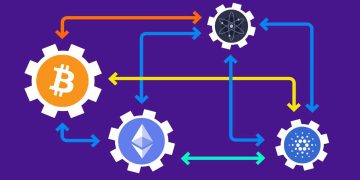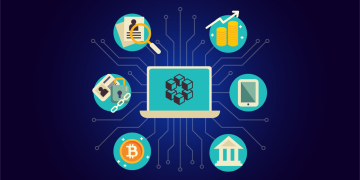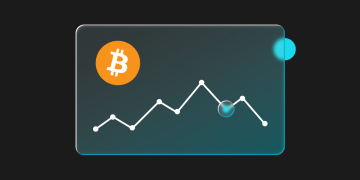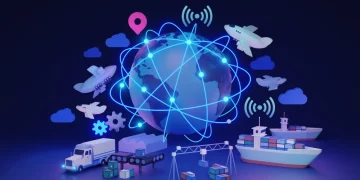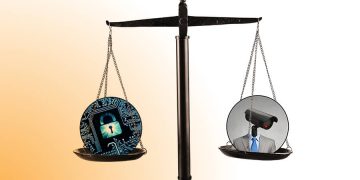Introduction
In the past few decades, the world has witnessed rapid globalization, technological advancements, and an interconnected global economy. While these developments have fueled innovation and economic growth, they have also presented a range of regulatory challenges for governments and international bodies. The task of regulating industries ranging from finance to technology, healthcare to environment, has become increasingly complex due to the fast-paced evolution of global markets, digital technologies, and shifting geopolitical dynamics.
In particular, the rise of emerging technologies like artificial intelligence (AI), blockchain, and the increasing prevalence of cross-border data flows, has made it harder for regulators to keep pace with the changes. Simultaneously, societal challenges such as climate change, inequality, and public health crises demand a coordinated regulatory response. Regulatory bodies, both at national and international levels, are now faced with the difficult task of navigating these complexities while balancing innovation, fairness, security, and sustainability.
This article explores the key regulatory challenges faced by global regulatory bodies, delves into specific sectors that are experiencing heightened regulatory scrutiny, and discusses the need for enhanced cooperation and innovative solutions to address these challenges.
1. The Rapid Pace of Technological Change
One of the primary challenges faced by regulators today is the fast-paced evolution of technology. Innovations such as artificial intelligence, machine learning, blockchain, and the Internet of Things (IoT) are reshaping entire industries. These technologies introduce new opportunities but also raise significant risks, particularly when it comes to issues like privacy, security, and market competition.
a. Artificial Intelligence and Automation
The rise of AI and automation has had a transformative impact on industries across the globe. While AI can drive efficiency, improve decision-making, and enable innovative products and services, it also raises ethical concerns and regulatory challenges. Questions about data privacy, algorithmic transparency, accountability, and the potential for bias are just some of the issues regulators must address.
- Example: AI systems used in hiring and recruitment can perpetuate biases if not carefully designed. Regulators are challenged to create frameworks that ensure AI is deployed in ways that are ethical, transparent, and non-discriminatory.
- Key Challenge: AI’s rapid development outpaces existing regulations. Current frameworks are not equipped to address the ethical dilemmas posed by autonomous decision-making systems, making it difficult for regulators to establish guidelines for responsible AI usage.
b. Blockchain and Cryptocurrencies
Blockchain technology, which underpins cryptocurrencies like Bitcoin and Ethereum, has created a new frontier for financial markets, offering a decentralized, transparent, and secure way to exchange information and value. However, the lack of clear regulatory frameworks for cryptocurrencies and blockchain technology has raised concerns about money laundering, fraud, and investor protection.
- Example: Cryptocurrencies like Bitcoin are frequently used for illicit transactions, creating a need for global regulatory standards that prevent illegal activities while fostering innovation.
- Key Challenge: Regulatory bodies are struggling to balance the desire to foster blockchain innovation with the need to ensure the technology is not exploited for illicit purposes or destabilize traditional financial systems.
2. Globalization and Cross-Border Issues
As businesses become more global, regulators are faced with the challenge of managing cross-border issues, particularly in areas such as trade, data protection, and corporate taxation. The digitalization of business operations, coupled with the growing interconnectedness of global markets, requires coordinated regulatory efforts across jurisdictions.
a. Cross-Border Data Flow and Privacy
The digital economy relies heavily on the free flow of data across borders. However, different countries have different standards for data privacy, and these discrepancies create complications for multinational companies that must comply with a patchwork of regulations.
- Example: The European Union’s General Data Protection Regulation (GDPR) has become a global benchmark for data privacy, but many countries, such as the United States, have not adopted similar comprehensive data protection laws. This leads to tensions and legal challenges when it comes to transferring data between countries.
- Key Challenge: Regulators must create frameworks that allow for the seamless transfer of data across borders while ensuring individuals’ privacy is protected and businesses can comply with the laws of different jurisdictions.
b. International Trade and Tariffs
Global trade is increasingly impacted by regulations governing tariffs, subsidies, and market access. Regulatory bodies must navigate the complex web of international trade agreements, domestic policies, and the needs of different industries.
- Example: Trade wars, like the one between the United States and China, have disrupted global supply chains and raised questions about the role of trade regulators in enforcing fair and open markets.
- Key Challenge: Regulatory bodies must be able to adapt to the dynamic nature of international trade, addressing issues such as protectionism, market fairness, and the integration of emerging markets into the global economy.

3. Regulatory Challenges in Specific Sectors
While the general challenges mentioned above apply to many sectors, some industries face particularly acute regulatory scrutiny. Below are examples of sectors that present unique challenges to global regulators:
a. Financial Services
The financial services industry is one of the most heavily regulated sectors globally. However, new financial technologies, such as fintech, robo-advisors, peer-to-peer lending platforms, and cryptocurrencies, have disrupted traditional financial systems and created new challenges for regulators.
- Example: The rise of decentralized finance (DeFi) has raised questions about how to regulate financial products that bypass traditional banks and intermediaries.
- Key Challenge: Financial regulators must develop frameworks that address the risks posed by fintech innovations while ensuring that consumers are protected and the stability of financial markets is maintained.
b. Healthcare and Pharmaceuticals
The healthcare sector is experiencing rapid technological advancements, particularly in areas like telemedicine, personalized medicine, and genetic editing. However, these innovations bring regulatory challenges related to safety, efficacy, patient privacy, and ethics.
- Example: CRISPR gene-editing technology holds the potential to revolutionize medicine, but it also raises ethical concerns about human genetic modification and the potential for misuse.
- Key Challenge: Healthcare regulators must balance the potential benefits of technological innovation with the need to protect patients and ensure that new treatments are safe, ethical, and equitable.
c. Environmental Regulations
Climate change, pollution, and resource depletion have created urgent regulatory challenges in the environmental sector. Governments and regulatory bodies are under pressure to implement policies that address environmental concerns while also supporting economic growth.
- Example: The implementation of carbon pricing, emissions trading systems, and renewable energy incentives requires a delicate balance of global cooperation and local action.
- Key Challenge: Regulators must create frameworks that encourage sustainable practices while considering the diverse interests of businesses, consumers, and governments across different regions.
4. The Need for International Cooperation
One of the most significant challenges facing global regulators is the need for greater international cooperation. Many of the regulatory issues discussed above, such as data privacy, climate change, and trade, cannot be solved by individual countries acting alone. Instead, they require coordinated efforts between governments, international organizations, and industry stakeholders.
a. Multilateral Agreements
International agreements, such as those facilitated by the United Nations or the World Trade Organization (WTO), play a crucial role in harmonizing regulations across borders. For example, the Paris Agreement on climate change represents a global effort to combat climate change through coordinated national actions.
- Key Challenge: Achieving consensus on global regulations is often difficult, especially when countries have differing economic priorities, political systems, and levels of development.
b. Regulatory Sandboxes
To foster innovation while maintaining oversight, some regulatory bodies have established regulatory sandboxes—controlled environments in which new technologies can be tested under relaxed regulations. These sandboxes allow regulators to evaluate the risks and benefits of new technologies before implementing broader regulations.
- Example: The Financial Conduct Authority (FCA) in the UK has established a regulatory sandbox to test fintech innovations, enabling regulators to learn about new technologies and adapt regulations accordingly.
5. Future Directions for Global Regulation
Given the rapid changes in technology, markets, and societal challenges, regulators must continue to evolve. Several trends and strategies could shape the future of global regulation:
a. Flexible and Adaptive Regulations
As the pace of change accelerates, regulatory frameworks must become more flexible and adaptive. Instead of rigid rules, regulators could focus on creating principles-based approaches that allow for continuous adjustment in response to emerging risks.
b. Emphasis on Ethical Governance
Regulators must increasingly focus on the ethical implications of new technologies, ensuring that innovations are used for the public good and do not perpetuate harm or inequality.
c. Greater Public-Private Collaboration
Governments and regulatory bodies will need to work more closely with private-sector companies, particularly those in tech, to co-create regulations that are both effective and feasible.
Conclusion
The regulatory landscape is becoming increasingly complex as global markets, digital technologies, and societal challenges evolve. Regulatory bodies worldwide must adapt to these changes, balancing the need for innovation with the protection of public interest. Through greater international cooperation, the development of flexible regulatory frameworks, and an emphasis on ethical governance, regulators can help ensure that the global economy remains stable, fair, and sustainable.
The challenges are significant, but so are the opportunities. By addressing these issues proactively, global regulators can foster an environment that supports both economic growth and the well-being of individuals across the world.

